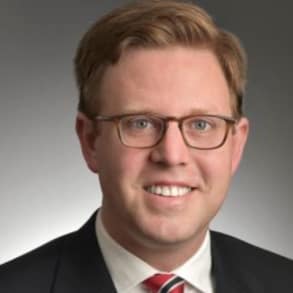Meet Dr. Clinton Kemp, as he discusses his areas of focus, his path to medicine, his approach to patient care, what brought him to Sentara and how the field of Cardiac Surgery is evolving.
Good afternoon. I'm Clint Kemp. I'm one of the cardiothoracic surgeons at Sana Mid Atlantic cardiothoracic surgeons. I focus on all aspects of adult cardiac surgery from LV and transplant, uh valve implants, coronary artery bypass grafting, as well as thoracic surgery, thoracic surgical oncology as well. I suppose what, what drew me to medicine is, I've always been interested in science. I remember in high school learning about the cell and molecular biology and that's what I ended up focusing on in college. Um really enjoyed the research aspect of it, but I also knew I wanted to work with people and I thought that medicine would be a great way to work with both of those things. I think, especially in 2023 it's very important that we identify the needs of the patient and we work together as a team to figure out what their best treatment is going to be. As I often tell my patients what's right for one patient may not be right for another. And that's part of the relationship that we develop when you come to see me is we figure out exactly what's going on and what we need to do to be able to treat you well. My wife is a dramata pathologist and she used to be in the United States Navy and she got transferred down to Portsmouth Naval Hospital. Uh One of my good friends and colleagues in residency, Doctor Borrero, who's also in my group um had been practicing here at Sana ever since he graduated. Um And he told me about the location and the practice. Um very fortunately they had an opening uh in the practice when my wife was set to come down here. And even though she's been out of the Navy now for three years, we love the area. I really enjoy working at Sana. And we've decided to make Norfolk our home. One of the things I love about medicine, surgery and cardiac surgery in particular is that we're constantly pushing the envelope coming up with new treatments. Many of the things that we do today weren't even thought of when I was in medical school or even in training. So we've had to do a lot of sort of new training as new technology comes out. Two areas in particular come to mind. One of them is certainly structural heart. We now have procedures we can do entirely percutaneously with our team that used to take a full open heart surgery to be able to accomplish. And this allows our patients to recover faster with less risk and less mortality and morbidity. Another area that's really become hot as of late is in the heart failure and transplantation realm. We now have implantable devices to be able to support both the right and the left heart to allow patients to recover after a heart attack or if they're unable to recover, to support them while they are awaiting a durable implanted, left ventricular assist device or even a heart transplant. And those are the things that are exciting because we never know what's going to come down the pike next. And every day we get to, you know, use these technologies for the betterment of our patients.
Related Presenters
